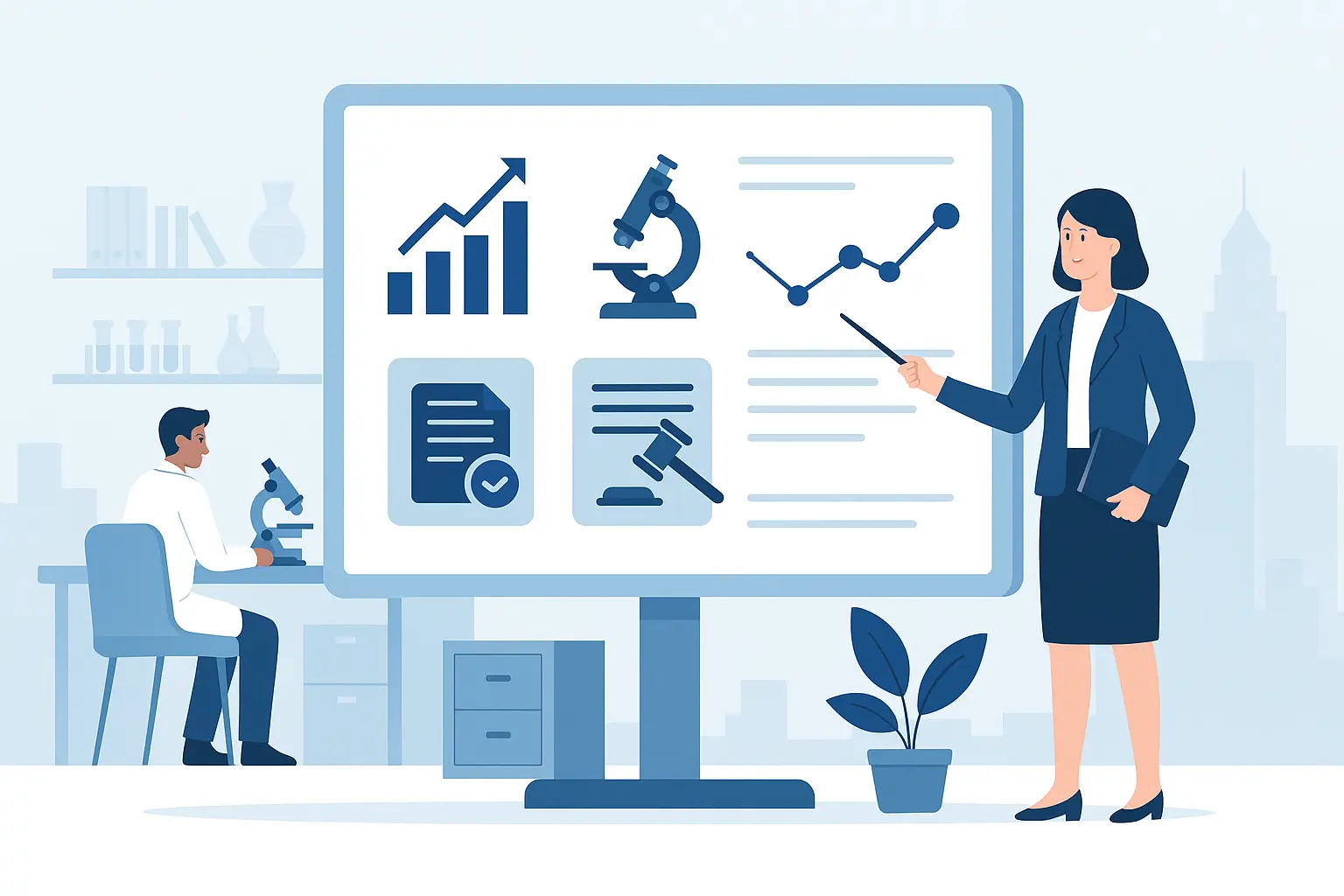Industry Insights
Six Experts Discuss the State of Anatomic Pathology LIS Systems
July 3, 2025
The February 2023 issue of CAP Today featured publisher Bob McGonnagle and his roundtable discussion with five laboratory information system vendors and John Sinard, MD, PhD, of Yale School of Medicine.
For those who may have missed the discussion, a link to full access is provided below.
CAP Today Roundtable: Doing more for less and with less: Turning to IT
The roundtable discussion covered a wide range of topics, including the future of cloud-based laboratory information system (LIS) software and what anatomic pathology LIS organizations should consider for security and data storage before potentially moving from on-premises servers for their LIS lab solutions.
Learn More: LigoLab’s LIS Software Offers Server Flexibility
Weighing Laboratory Information System Server Options
LigoLab CEO Suren Avunjian participated in the discussion. He said it will take considerable time for larger laboratories to fully shift toward having their LIS laboratory information system functions and data stored in the cloud because they are more comfortable with the data being close to them.
For smaller organizations, a cloud-based server supporting medical LIS software is often the more prudent choice because of the significant cost of building an in-house data center and an IT department to manage it. In the near term, Avunjian believes that LigoLab and other like-minded LIS healthcare companies should continue to offer both options to their customer bases.
Learn More: Automation in Pathology Labs Using Advanced LIS System Software
The Future of Pathology Lab Software Post-Pandemic
The six industry experts were also asked to assess the overall health of pathology practices and molecular LIS laboratories as they transition from the high-volume COVID testing that was a part of everyday life during the pandemic.
The panel noted increases in anatomical pathology software testing and sustained interest in molecular LIS testing beyond SARS-CoV-2. Consolidation in the laboratory space was also discussed, along with growing interest in revenue-sharing programs (such as TC/PC splits, where the technical and professional components are shared between two labs).
Learn More: A Scalable Solution for Molecular LIS Testing Labs
Other topics included the shortage of pathologists and the desire for them to have laboratory information system software built specifically for pathology and sub-specialties (meaning anatomic pathology LIS and anatomical pathology software specifically designed for their practices).
On-Demand Webinar: Beat Pathologist Burnout & Combat Staffing Shortages
Lab Pathology Software, Interoperability, and Digital Pathology Solutions
Avunjian was also asked to comment on application programming interfaces. He responded by saying there has been a noticeable uptick in the past couple of years with prospects and current customers asking for open APIs and moving away from reporting results solely via HL7. He said this trend will continue to grow and that LIS software vendors such as LigoLab must continue to engineer laboratory information systems that can model the reality of each testing discipline and offer LIS systems that can seamlessly connect to all of a lab’s departments.
Dr. Sinard commented on the training of pathologists and lab techs. Next, the discussion turned to digital pathology. The new CPT codes associated with this laboratory workflow management process were also discussed.
Industry Insights: Digital Pathology Redefined: Uniting AI, Viewers, and a Robust LIS System for a Seamless Workflow
Predicting the Next Trends in Pathology Lab Software
McGonnagle closed the roundtable discussion by asking all six panelists if pathology departments would be in better or worse shape in three years.
All six struck an optimistic tone, with Avunjian, in particular, suggesting that future pathology labs will find success by differentiating in their respective marketplaces thanks to strong partnerships with pathology lab software providers that continue to push the envelope in terms of features and functionality available within modern LIS pathology systems.
Learn More: The Role of Anatomic Pathology Software in Optimizing Laboratory Workflow Management
Learning More About the State of the LIS Systems Market
For pathology lab management colleagues interested in learning more about what a modern LIS laboratory information system like the LigoLab Informatics Platform can offer, check out the white paper linked below.
White Paper: Comparing LigoLab Informatics Platform with Legacy Laboratory Information System Software
Modernizing Medical Labs: The LigoLab Approach to Innovation
“Today’s medical labs must embrace modern technologies and best practices to boost productivity, streamline operations, enhance customer relationships, and maximize value.”
— Suren Avunjian, LigoLab CEO
Defining Innovation
The term “innovation” has been so overused by some laboratory Information system companies that it’s become a buzzword devoid of real substance. Yet, truly innovative LIS system technology is exactly what the medical community, especially clinical labs and pathology groups, urgently needs.
Labs face serious external threats, including record-high sample volumes, reimbursement cuts, complex payer rules, increased competition, rising supply costs, and a shortage of skilled personnel.
LigoLab’s Foundational Vision for Pathology Lab Software
LigoLab was founded in 2006 to address these challenges with an unwavering commitment to innovation and customer partnership. This focus emerged from the founders' experiences in scaling a successful lab, which eventually became the largest privately held lab in California.
They launched LigoLab as a customer-funded venture, allowing the LIS company to prioritize client needs over shareholder interests. This unconventional approach gave LigoLab the flexibility to innovate continuously without external investor pressures.
Learn More: Shaping the Future of Clinical Labs & Pathology Groups
Commitment to Continuous LIS Software Innovation
“Investing over 50 percent of revenue into research and development is how we stay at the forefront,” said Avunjian. LigoLab releases three to four new features daily, ensuring labs have the tools and flexibility to adapt to ever-changing environments.
This relentless focus on customer needs helps labs improve functionality, automation, sample tracking, and scalability, setting them apart from those using outdated laboratory information systems.
Free LIS System Updates and Dedicated Support
Since its inception, LigoLab has offered free medical LIS software upgrades with unlimited modules and user access, eliminating hidden fees. The updates are available through a user-friendly version release button embedded within the platform. Labs can choose whether to adopt quarterly updates, with mandatory upgrades only after two years to maintain compliance.
Updates are performed overnight to ensure zero disruption to lab operations, and LigoLab includes compliance-driven modifications at no additional cost.
This commitment extends to creative problem-solving, enabling labs to optimize their operations and stand out in the competitive healthcare landscape.
Learn More: Unleashing Laboratory Excellence - Here’s How LigoLab’s Automation Engine Supercharges Lab Performance
Utilizing Three Dedicated Environments
LigoLab’s all-in-one medical LIS and laboratory billing platform includes three environments - Testing, Training, and Production - to ensure smooth, validated updates.
New features are first rolled out in the Testing environment, then transferred to Training for customer validation, before finally being deployed to Production.
This rigorous process guarantees that new laboratory information system functions are reliable and ready for real-world use.
Setting the Standard in LIS Systems
LigoLab’s focus on customer-centric LIS pathology software innovation has set new standards for LIS systems and laboratory revenue cycle management (lab RCM) software.
By prioritizing customer needs and fostering strong partnerships, LigoLab continues to transform traditional lab practices, enabling modern labs to thrive in an increasingly complex landscape.
“Innovation means reimagining lab operations to meet current challenges and future needs,” Avunjian emphasized.
For LigoLab, this is more than a slogan - it’s a mission to drive meaningful change in the lab industry.







